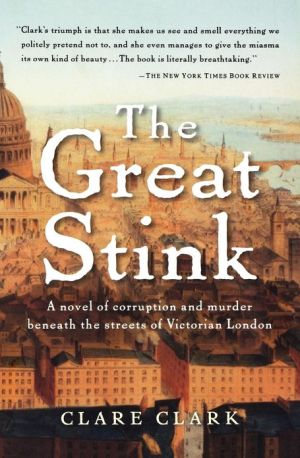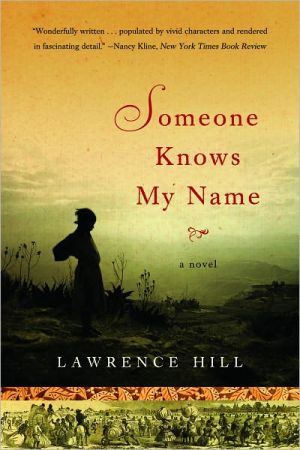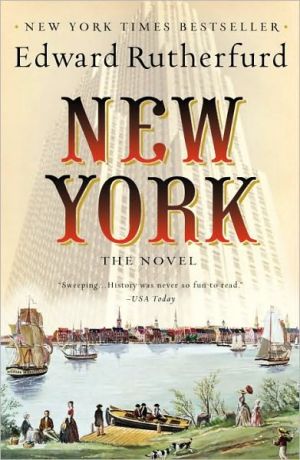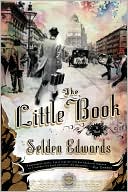The Great Stink: A Novel of Corruption and Murder Beneath the Streets of Victorian London
Clare Clark’s critically acclaimed The Great Stink “reeks of talent” (The Washington Post Book World) as it vividly brings to life the dark and mysterious underworld of Victorian London. Set in 1855, it tells the story of William May, an engineer who has returned home to London from the horrors of the Crimean War. When he secures a job transforming the city’s sewer system, he believes that he will be able to find salvation in the subterranean world beneath the city. But the peace of the...
Search in google:
It is 1855, and engineer William May has returned home to London and his beloved wife from the horrors of the Crimean War. When he secures a job transforming the city's sewer system, he believes it will prove his salvation, as, in the subterranean world beneath the city, he begins to lay his ghosts to rest. But when the peace of the tunnels is shattered by a violent murder William loses his tenuous hold on his sanity. Implicated in the crime, plagued by nightmares and visions, he is no longer sure: Could he truly have committed it? Long Arm Tom is a tosher who scavenges for anything of value in the old sewers, always accompanied by his beloved dog Lady. It is this business that brings him into contact with "The Captain," a wealthy businessman with a weakness for gambling who asks Tom to use his knowledge of London's underworld for an even less savory purpose. But Tom is also William's only hope of salvation. Will he help William bring the truth aboveground?With richly atmospheric prose of almost visceral power, The Great Stink transports us behind (and below) the glittering façades of Victorian England. Seamlessly combining fact with fiction, it marks the debut of an outstandingly talented writer in the tradition of the very best of historical novelists.The Washington Post - Ron CharlesWith its intense olfactory workout, The Great Stink won't be to everyone's taste, but it's a rich work of history and a gripping exploration of the unmentionable currents that run beneath the surface of our lives -- and it reeks of talent.
Where the channel snaked to the right it was no longer possible to stand upright, despite the abrupt drop in the gradient. The crown of William’s hat grazed the slimed roof as he stooped, holding his lantern before him, and the stink of excrement pressed into his nostrils. His hand was unsteady and the light shuddered and jumped in the darkness. Rising and rushing through the narrower gully, the stream pressed the greased leather of his high boots hard against the flesh of his calves, the surge of the water muffling the clatter of hooves and iron-edged wheels above him. Of course he was deeper now. Between him and the granite-block road was at least twenty feet of heavy London clay. The weight of it deepened the darkness. Beneath his feet the rotten bricks were treacherous, soft as crumbled cheese, and with each step the thick layer of black sludge sucked at the soles of his boots. Although his skin bristled with urgency, William forced himself to walk slowly and deliberately the way the flushers had shown him, pressing his heel down hard into the uncertain ground before unrolling his weight forward on to the ball of his foot, scanning the surface of the water for rising bubbles. The sludge hid pockets of gas, slop gas the flushers called it, the faintest whiff of which they claimed could cause a man to drop unconscious, sudden as if he’d been shot. From the little he knew of the toxic effects of sulphuretted hydrogen, William had every reason to believe them. The pale light of his lantern sheered off the black crust of the water and threw a villain’s shadow up the curved wall. Otherwise there was no relief from the absolute darkness, 1 525H_text 29/10/04 9:52 am Page 1 not even in the first part of the tunnel where open gratings led directly up into the street. All day the fog had crouched low over London, a chocolate-coloured murk that reeked of sulphur and defied the certainty of dawn. In vain the gaslamps pressed their circles of light into its upholstered interior. Carriages loomed out of the darkness, the stifled skitters and whinnies of horses blurring with the warning shouts of coachmen. Pedestrians, their faces obscured by hats and collars, slipped into proximity and as quickly out again. On the river the hulking outlines of the penny steamers resembled a charcoal scrawl over which a child had carelessly drawn a sleeve. Now, at nearly six o’clock in the evening, the muddy brown of afternoon had been smothered into night. William was careful to close the shutter of his lantern off beneath the open gratings, as furtive as a sewer-hunter. It was bad enough that he was alone, without a look-out at ground level, in direct contravention of the Board’s directives. It would be even harder to explain his presence here, in a section of the channel recently declared unsafe and closed off until extensive repair work could be undertaken. William could hardly protest to be innocent of the decision. He had written the report requiring it himself, his first official report to the Board: \ \ Within the southern section of the King-street branch deterioration to interior brickwork is severe, with the shoulder of the arch particularly suffering from extensive decomposition. While tidal scour can be relied upon to prevent undue accumulation of deposits, the high volumes of floodwater sustained within the tunnel during periods of full tide and heavy rainfall pose a grave threat to the stability of the interior structure. Underpinning of the crown is urgently required to prevent subsidence. DANGER.\ \ The precision of the words had satisfied him. Within them was contained the evidence of a world where method and strapped down chaos. On their very first day as assistants to the Commission the group of young men had been taken to meet Mr Bazalgette himself. One of their number, eager to ingratiate himself with the master, had begged him to disclose what he considered the characteristics of a successful engineer. Bazalgette had paused, his fingers against his lips. When he spoke it was quietly, almost to himself. The great engineer, he said, was a pragmatist made conservative by the conspicuous failures of structures and machines hastily contrived. He was regular in his habits, steady, disciplined, methodical in his problem-solving. He was equable and law-abiding. Carelessness, self-indulgence, untidiness and fits of temper were foreign to him. From the turmoil of his natural instincts he brought order.\ \ ‘How unutterably tedious he’d like us!’ one of the pupils had hissed at William as they were dismissed. William paid no attention. In the months that followed he had held on to Bazalgette’s words, repeating them to himself until their shape acquired the metre of a magic charm. William no longer trusted in prayer.\ \ Where the floor of the tunnel levelled out once more William paused, holding his lantern up to the wall. The water tugged impatiently at his boots. Where the light caught it, the masonry bulged with overlapping wads of fungi. They sprouted fatly from between the spongy bricks, their fleshy undersides bloated and blind, quilting the holes that pocked the walls. They were the closest that the tunnels came to plant life but William could find no affection for them. He ducked further, pulling in his shoulders to avoid brushing against their pallid flesh. Their cold yeasty smell rose above the privy stench of the filthy water. William’s throat closed. For a moment he felt the tilt of the ship and his hair crawled, alive with vermin. Men moaned all around him, crying out for help that never came. He had a sudden urge to dash the glass of the lantern against the wall. A shard of the broken glass would be as sharp as a knife. It would slice through the stinking fungi until their flesh fell away from the wall. Would it bleed or would it simply yield the yellowed ooze of a corpse too long in the sun? The craving quickened within him and his breath came in shallow dips. He imagined his fingers closing round a dagger of glass, tight and then tighter until his blood ran in narrow black streams between his knuckles. The hunger pressed into his throat, and crowded his chest. He stared into the lantern, watching the worm of flame curl as he swung it slowly backwards and forwards. Just one hard blow. That was all it would take. He pulled back his arm . . .\ \ No! The lantern swung dizzily as he snatched in his hand and a pale fragment of mushroom swirled away in the stream. A fine crack ran upwards through the glass of the lantern but the light did not go out. Unhurriedly the flame stretched, shivered and then steadied. Sweat trickled from beneath the brim of William’s hat. He gripped the handle of the lantern tightly, angry at his imprudence. Without the lantern he would never find his way back to the shaft. Forcing his mouth full of saliva he licked his lips. Regular in his habits, steady, disciplined, methodical in his problem-solving. Equable and law-abiding. He repeated the words to himself as he moved further into the tunnel. His knees were unsteady.\ \ Once again the tunnel narrowed. Here there was barely room to accommodate the spread of William’s shoulders and the water rushed over his knees. At high tide the flow would fill the channel almost to the roof. Where the stream scoured the walls there were no more mushrooms. Instead the walls were slick with a fatty dew of nitre that gleamed silver in the lantern’s light. In the darkness beyond, a row of stalactites hung like yellowing teeth from a narrow lip of brick in the curve of the roof. This was the place, the place where young Jephson had finally gone to pieces.\ \ It had not come quite without warning. Jephson, a gangly surveyor with the raw oversized knuckles of the not-quite man, had been discomfited for at least a half-mile, the perspiration standing out on his forehead as he complained of stomach aches, headaches, of difficulty breathing. He had insisted that the ganger pause every few yards and hold out his lantern on its pole in the darkness, checking and rechecking for the presence of choke-damp. While the measurements were being taken his hands had trembled so violently that William had taken the spirit level from him, anxious it might be lost in the underground sludge. But it was not until they reached this point that the boy finally lost his head. His fear had travelled backwards through the tunnel like gas, poisoning the other men, but not William. William had watched with a detached disinterest as Jephson flailed, screaming, in the filthy water. He had noted the lettuce-green tinge of his pinched face as his hat was carried off by the current. He had observed the spots of red flaring on each of his sharpened cheekbones, the bony white fingers clutching at the crumbling walls. He had felt nothing but a faint impatience as Jephson thrashed and shrieked in the restraining grip of the ganger and his assistant. The flushers were stout as butchers and their great fists encircled Jephson’s arms as easily as if they were axe-handles but for a time the young man’s movements were so violent that it had been as much as they could manage to hold him at all. At last Jephson’s wild legs had kicked out with such force that he had dislodged a welter of bricks. ‘Get ’im out of ’ere!’ There had been no mistaking the edge of warning in the ganger’s habitually lugubrious tone. When finally they bundled him up into the street, the rest of the surveying party following in subdued silence, Jephson’s hair was clumped with filth and his nails had been quite torn away. \ \ Copyright © Clare Clark, 2005\ \ All rights reserved. No part of this publication may be reproduced or transmitted in any form or by any means, electronic or mechanical,\ including photocopy, recording, or any information storage and retrieval system, without permission in writing from the publisher.\ \ Requests for permission to make copies of any part of the work should be mailed to the following address: Permissions Department, Harcourt, Inc.,\ 6277 Sea Harbor Drive, Orlando, Florida 32887-6777.
\ Amanda ForemanCrisp, assured, and relentlessly pungent. One does not so much read The Great Stink as smell, hear and taste it.\ \ \ \ \ Ron CharlesWith its intense olfactory workout, The Great Stink won't be to everyone's taste, but it's a rich work of history and a gripping exploration of the unmentionable currents that run beneath the surface of our lives -- and it reeks of talent.\ — The Washington Post\ \ \ Susann CokalClark's triumph is that she makes us see and smell everything we politely pretend not to, and she even manages to give the miasma its own kind of beauty: "The stink of rotting meat crammed the skull and a fatty brown foam curdled on the water"; in the sewers, "the walls were slick with a fatty dew of nitre that gleamed silver in the lantern's light"; and when William slices his arm, "the disintegrating sand of his self no longer slipped from his fingers. . . . Inside his head the shadowy twilight darkened and tightened to reveal at its center a single vivid pinprick of light." At moments of such lyrical brilliance and sensory precision, the book is literally breathtaking.\ — The New York Times\ \ \ \ \ Publishers WeeklyDickens fans should devour British author Clark's debut novel, a gripping and richly atmospheric glimpse into the literal underworld of Victorian England-the labyrinthine London sewer system. When the "great stink" of the title-the product of an oppressive heat wave combined with putrid sewage overflow-threatens to shut down the British capital in 1855, the politicians agree to fund massive repairs. That immense public works project is a natural magnet for the corrupt, and engineer William May, a psychologically scarred Crimean War veteran, soon finds his ethics challenged. When he courageously decides not to rubber-stamp the use of inferior brick, he puts his life, his sanity and his family at risk. May's vague recollection of a murder he may have witnessed in the depths of the sewer system results in his becoming the prime suspect and being incarcerated in an asylum. That the mystery's eventual resolution depends a bit too much on a deus ex machina in no way detracts from Clark's considerable achievement in bringing her chosen slice of Victoriana to life. She shows every evidence of being a gifted and sensitive writer in the same league as such historical novelists as Charles Palliser. Agent, Clare Alexander (U.K.). (Oct.) Copyright 2005 Reed Business Information.\ \ \ \ \ Seattle Times"Recall[s] Robert Louis Stevenson in Mr. Hyde mode. Here's a talent to watch."\ \ \ \ \ \ \ Library JournalClarke's debut brings together two men in the dankly atmospheric tunnels of Victorian London. Recently returned from the Crimean front and suffering what would now be known as posttraumatic stress disorder, William May is newly employed as a surveyor on Joseph Bazalgette's great underground sewer project. Long Arm Tom, on the other hand, is a rougher sort who makes his living as a scavenger and rat catcher. As William grows increasingly manic, he neglects his home and family, finding his only comfort in work and the opportunity it provides him to descend into the tunnels and relieve a burning desire to cut his skin. One trip down leads him to witness a murder, which he eventually links to a profiteering scheme in awarding sewer contracts. Framed for the killing, he winds up first in a mental asylum and, later, in prison. His only hope of acquittal is an inexperienced lawyer and Long Arm Tom. If librarians can persuade readers to ignore the malodorous title and the even more unfortunate subject heading (sewerage-fiction), they may strongly recommend this confidently written page-turner.-Barbara Love, Kingston Frontenac P.L., Kingston, Ont. Copyright 2005 Reed Business Information.\ \ \ \ \ Kirkus ReviewsExcrement happens in this impressively researched first novel, which earned its London author an Orange Fiction Prize nomination. It's a faux-Victorian melodrama, akin to such recent successes as Michel Faber's The Crimson Petal and the White and Sarah Waters's Fingersmith. Clark sets her darkly confrontational story in mid-1850s London, where William May, a severely traumatized Crimean War veteran, begins work as a surveyor for master engineer Joseph Bazalgette, who has been charged with renovating and sanitizing the city's notoriously malodorous and pestiferous sewers. Relying heavily on period historical sources (notably, Henry Mayhew's classic sociological study London Labour and the London Poor), Clark creates a graphically detailed vision of this hell just beneath earth. It's a limbo in which the increasingly unsettled May slashes and mutilates himself, and where the novel's most interesting character, "tosher" Long Arm Tom, patrols the fetid depths accompanied by his beloved dog Lady, scavenging for lost valuables and catching rats to be used as prey in the dogfights that are staged in London's grubbiest watering holes. As long as Long Arm Tom is present, the novel entices and persuades with horrific naturalistic force. Its central plot-involving a murder in which May is a suspect, the malevolent machinations of his antagonist Mr. Hawke, the prison ship (itself a floating sewer) on which May is incarcerated and the young lawyer who arrives late in the story, and rights all wrongs-is, alas, another story: a peculiarly cliched and uninteresting one. Clark's plot would indeed be her novel's undoing were it not for the genuine skill with which she rubs our noses in its ghastlyambiance, and for the wonderful Long Arm Tom, who might have enjoyed quaffing ale and swapping horror stories with Dickens's immortal Bill Sykes. Significantly flawed, but very much worth reading.\ \ \ \ \ New York Times Book ReviewCrisp, assured, and relentlessly pungent. One does not so much read The Great Stink as smell, hear and taste it.\ \ \ \ \ BookpageCrisp, assured, and relentlessly pungent. One does not so much read The Great Stink as smell, hear and taste it.\ \ \ \ \ Christian Science MonitorCrisp, assured, and relentlessly pungent. One does not so much read The Great Stink as smell, hear and taste it.\ \ \ \ \ Los Angeles TimesCrisp, assured, and relentlessly pungent. One does not so much read The Great Stink as smell, hear and taste it.\ \ \ \ \ Washington Post Book World"Recall[s] Robert Louis Stevenson in Mr. Hyde mode. Here's a talent to watch."\ \ \ \ \ PeopleCrisp, assured, and relentlessly pungent. One does not so much read The Great Stink as smell, hear and taste it.\ \ \ \ \ Rocky Mountain NewsCrisp, assured, and relentlessly pungent. One does not so much read The Great Stink as smell, hear and taste it.\ \ \ \ \ Seattle Times"Recall[s] Robert Louis Stevenson in Mr. Hyde mode. Here's a talent to watch."\ \ \ \ \ People MagazineCrisp, assured, and relentlessly pungent. One does not so much read The Great Stink as smell, hear and taste it.\ \








